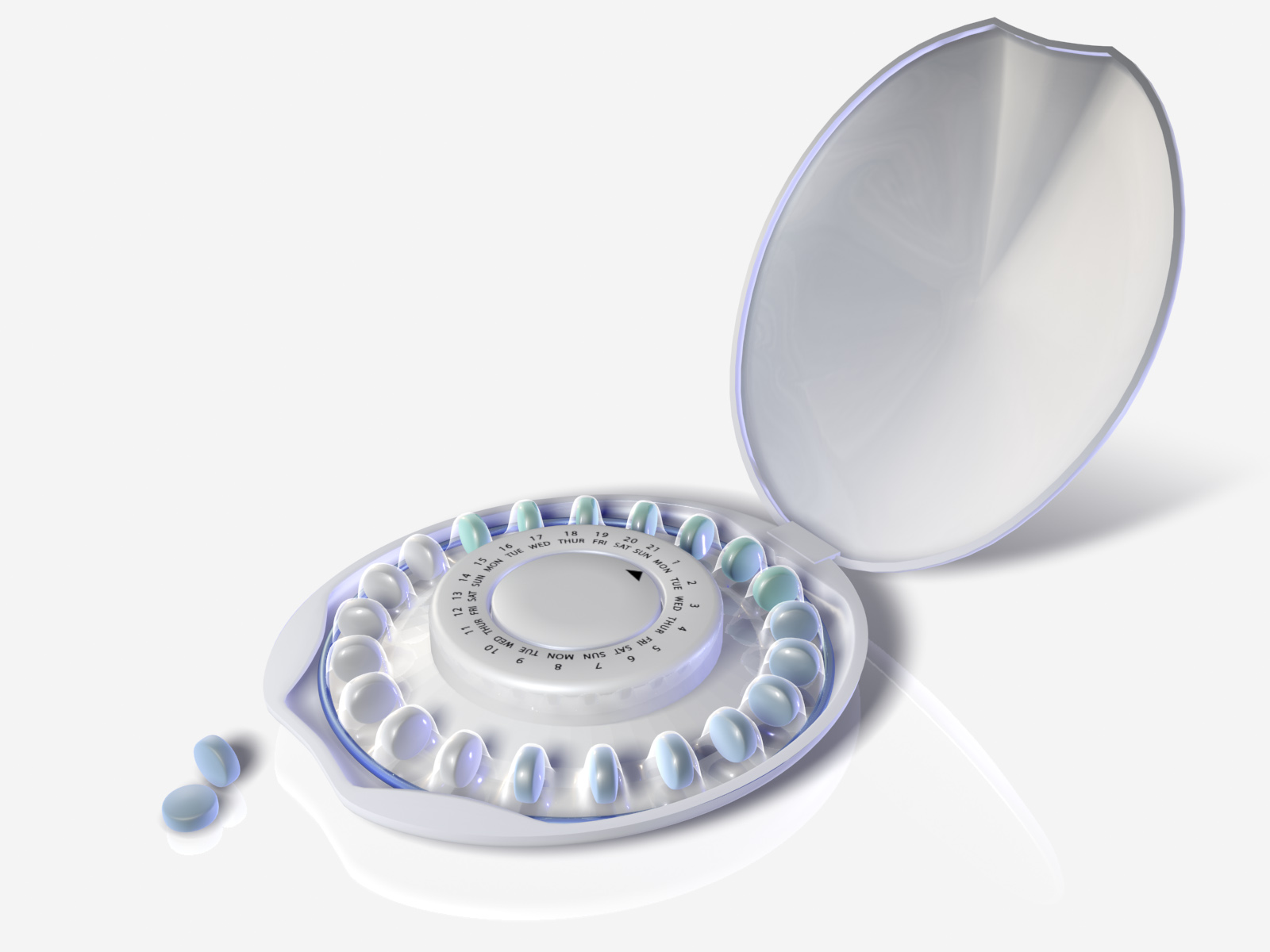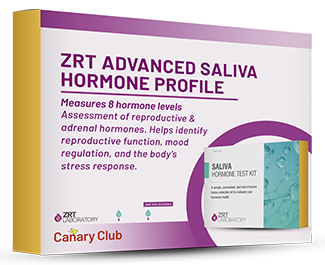Although not a form of hormone replacement, birth control pills or oral contraceptive pills (OCPs), have multiple hormonal effects on the body.
While hormone imbalance may be the underlying culprit of many of the complaints when using OCPs, many questions arise:
Exactly how are the active ingredients in birth control affecting your endogenous hormone levels?
Which hormone levels are appropriate to test? 
Is bioidentical supplementation an appropriate treatment approach for you?
Let's look at each question in a bit more depth:
OCPs provide a convenient, non-invasive, and affordable way for many women to take control of their contraceptive needs. OCPs typically contain both estradiol and progestin (a synthetic progesterone analog), although there are a few progestin-only choices currently on the market.
Though OCPs have many actions that decrease the likelihood of pregnancy, the primary mechanism of action of most OCPs is to suppress ovulation via estrogen's effect on the hypothalamus and subsequent suppression of FSH and LH production by the pituitary. This suppression of ovulation is further aided by the progestin's effect on the hypothalamic-pituitary-ovarian axis and by a change to the mid-cycle surge of FSH and LH.
With this alteration of the ovulatory cycle, women taking OCPs may test with lower estradiol levels. In addition, the suppression of ovulation means that the oocyte, follicle, and corpus luteum are not allowed to mature. With the corpus luteum being the main source of endogenous progesterone production, failure for it to mature causes a dramatic decrease in endogenous progesterone levels.
This dramatic decline in progesterone levels relative to the decline in estrogen levels often causes these women to experience many symptoms of estrogen dominance including:
- moodiness
- water retention
- breast tenderness
- tearfulness
- foggy thinking
Suppression of ovarian function often leads to lower endogenous testosterone levels as well, which may contribute to vaginal dryness, depressed libido, and compromised bone health.
Although women taking hormonal birth control have decreased levels of progesterone, supplementation with progesterone is typically not recommended as progestins bind to progesterone receptors, causing competition for absorption at the cellular level. This competition will likely compromise the would-be therapeutic benefit of bio-identical progesterone supplementation and could potentially result in a lowered OCP efficacy.
Since OCPs suppress estradiol, progesterone, and potentially testosterone levels, many providers question whether or not it is useful to do saliva testing at all in these patients. Based on symptoms and clinical suspicions the answer is oftentimes a resounding "Yes!" Testing androgen (DHEA and testosterone) and diurnal cortisol levels can often identify underlying hormonal imbalances and be of great benefit in developing an individualized treatment plan that successfully addresses your concerns and symptoms.
Additionally, assessing and addressing any concomitant neurotransmitter imbalances can be beneficial in alleviating mood, energy, and additional concerns that may be present.
Addressing these potential neuroendocrine imbalances for women using OCPs as their contraceptive management of choice may be beneficial in alleviating and/or decreasing their ancillary symptoms.
Canary Club offers at-home hormone testing at the best prices anywhere. Here are some popular tests related to female hormones:
Canary Club has a wide variety of at-home hormone and neurotransmitter tests from which to choose. These can indicate imbalances that cause or exacerbate chronic anxiety. This information is a great first step on the path to long-term well-being. Here is a short list of recommended tests: Canary Club is the place where you can come to better understand your condition, whether it is mild, moderate, or severe. Our goal is to help you find the information you need in order to effectively manage stress and live a more vibrant and vital life.
ZRT Advanced Saliva Profile
 See our ZRT Advanced Saliva Profile to check your adrenal and reproductive hormone levels.
See our ZRT Advanced Saliva Profile to check your adrenal and reproductive hormone levels.
Advanced Saliva Test Kit Includes:
- Estradiol (E2), Progesterone (Pg), and Testosterone (T) - known as the three major sex steroid hormones,
- Adrenal Hormones:
- DHEA-S (DS), and,
- Diurnal Cortisol (sampled 4x), showing your full daily cortisol cycle.
Canary Club Advanced Saliva Hormone Profile is also known as ZRT Saliva Profile III.
Available Add-ons:
You will be able to include these add-ons during the ordering process for the Advanced Saliva Profile.
Available add-ons: E1 Estrone and E3 Estriol
Additional Stress-Related Tests
- Cortisol Awakening Response
- Adrenal Stress Test
- Diurnal Cortisol 4x
- Women's Sex & Stress Hormone Panel
Additional Resources:
Resources
Speroff, Leon MD and Marc A. Fritz MD. Clinical Gynecologic Endocrinology and Infertility, 8th edition. Philadelphia: Lippincott Williams & Wilkins, 2010. Print.
Walker HK, Hall WD, Hurst JW, editors. Clinical Methods: The History, Physical, and Laboratory Examinations. 3rd edition. Boston: Butterworths; 1990.via http://www.ncbi.nlm.nih.gov/books/NBK283
John Lee, M.D. What Your Doctor May Not Tell You About Premenopause. 1999

